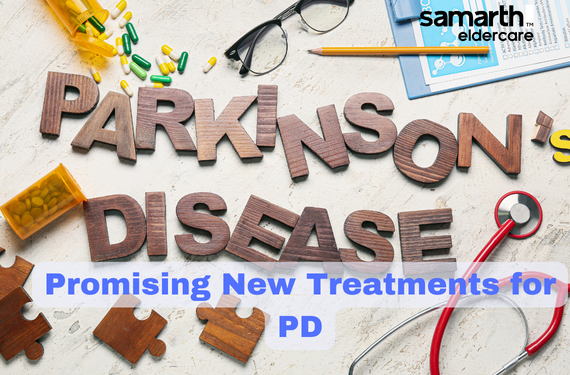Parkinson’s disease is a central nervous system disorder that affects all our functions involving nerves. It is a progressive disease, usually seen in people above 50 years and rarely, even in young people. People affected will have tremors and difficulty in balance, movements, and coordination. As of now, Parkinson’s disease is incurable. The only hope is for people to diagnose it early to try and slow down the progress of the disease and manage the symptoms.
Perhaps, this is why ongoing research happens to understand the disease more and find ways to prevent and cure it. A 2021 study concluded that India has around 7 million seniors afflicted by this disease. This number is significant considering that these people will mostly be incapable of doing their everyday chores and will need a constant caretaker. In India, as we know, caretakers are mostly family members, though, these days, there are options for opting for care services. The good news is that we have some new treatments available for Parkinson’s that bring a ray of hope to afflicted people and their families.
- ND0612
According to news published on 9th Jan 2023 by NeuroDerm, an Israel-based R&D firm researching Parkinson’s disease, their phase III trial with ND0612 yielded highly positive results in patients with motor fluctuations. ND0612 is a liquid drug (levodopa/carbidopa (LD/CD)) infused continuously, 24 hours a day, under the skin. This infusion option makes it highly effective as oral pill absorption in people with Parkinson’s can be ineffective as stomach emptying is irregular. This drug temporarily replaces the dopamine in the brain, which decreases in Parkinson’s patients. Thus, it relieves motor symptoms like tremors, slowness and stiffness.

Join Now >
Currently, the drug is available as an oral pill, inhaler, and gel infusion into the intestine. However, this latest under-the-skin infusion provided consistent relief to the patients, despite some mild infusion site reactions, which were mostly non-serious. To get the required approvals to make this drug available for public use, the company has to follow the process and submit an application to the US FDA.
References: https://www.michaeljfox.org/news/new-parkinsons-drug-formulation-shows-positive-phase-iii-trial-results
- Stem cell therapy
Stem cell therapy is a new treatment approach for Parkinson’s disease that aims to replace or repair the lost or damaged dopamine-producing brain cells. These cells are administered into the body intravenously and will find areas of inflammation and damage through a homing process. They reduce neuroinflammation and modulate the immune system, thus aiding in disease prevention for extended periods.
In Parkinson’s, the brain loses the functioning of dopamine-producing cells, and stem cell therapy helps restore the normal functioning of these. Thus, stem cell therapy helps improve motor symptoms, tremors, stiffness, and difficulty with movement. So far, stem cells from aborted foetuses/umbilical cord, bone marrow, and adipose tissue have been experimented with for the therapy. Over the years, various studies have concluded that stem cell therapy is safe and helped reduce the severity of the symptoms. However, these clinical study results and more research and conclusion is needed before stem cell therapy is used widely as a treatment option for Parkinson’s disease.
https://www.dvcstem.com/post/stem-cell-therapy-for-parkinsons
- Ambroxol (Cough syrup)
Who would have thought a cough syrup could also become a potential drug to treat Parkinson’s disease? According to a news published on the UCLH website, a large Phase III clinical trial will explore if Ambroxol, a commonly used medication to treat respiratory diseases in Europe, can slow the progress of Parkinson’s disease. The Phase III trials had shown highly promising results, based on which Phase III trials are to begin in early 2023. The results of Phase II trials also showed that the drug was safe and tolerable for people with Parkinson’s disease. The article mentions that Professor Anthony Schapira at UCLH and UCL will lead the trial, involving 330 people with Parkinson’s disease across 10-12 clinical centres in the UK.
These are some of the latest advances in Parkinson’s disease treatment under exploration/research currently. It may take time before most of this research gets fully concluded, sometimes, even years. Therefore, it could be a year or two more before these lines of treatments are available as approved options. However, these are the rays of hope for Parkinson’s disease patients.







